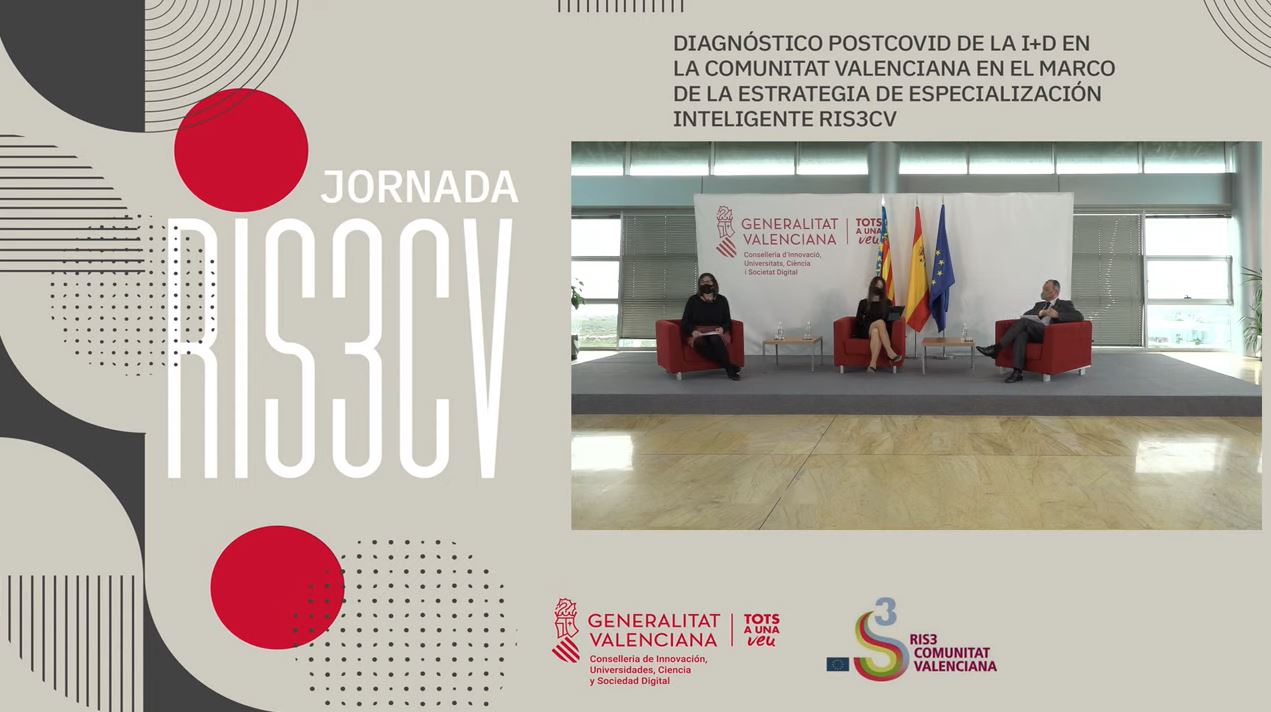Esta web utiliza cookies para que podamos ofrecerte la mejor experiencia de usuario posible. La información de las cookies se almacena en tu navegador y realiza funciones tales como reconocerte cuando vuelves a nuestra web o ayudar a nuestro equipo a comprender qué secciones de la web encuentras más interesantes y útiles.
News

The “technology push” induced by COVID-19: an opportunity to improve the Valencian System of Innovation (SVI)
Ivie Researcher, Ernest Reig, presents the study developed for RIS3CV on the Valencian economy and SVI, in which he highlights the need to increase public and private R&D investment in the Valencian Community
The COVID-19 crisis has boosted the role of research and innovation as a mechanism of resilience and response to the exogenous shock of uncommon magnitude triggered by the pandemic. The report Análisis de la economía valenciana y el sistema valenciano de innovación (Analysis of the Valencian economy and the Valencian Innovation System), developed for the Valencian Regional Government program, RIS3, gives an in-depth look at the Valencian Community’s main weaknesses and strengths in R&D&I, as a starting point to propose a strategy for improvement. The report was presented on March 30, 2021 at a conference chaired by the Valencian Regional Minister for Innovation, Carolina Pascual with participation by the President of CEV (Valencia Business Confederation), Salvador Navarro and General Director of Innovation of the Valencian Regional Government, Sonia Tirado. Following the presentation, a round table discussion took place with the Secretary of Employment and Training of CCOO PV, Ana García Alcolea; Vice-president of RUVID, Dolores Real; Director of the Technical Area of the CEV, Elisa del Río; and Director of REDIT, Gonzalo Belenguer.
The document shows that R&D expenditure as a share of GDP is below the Spanish average and the share of personnel employed in R&D over total population is 9.9%, also below the national average (11.7%) and far behind that of the Basque Country (21%), Madrid, Navarra and Catalonia. However, it highlights the continuous increase in expenditure incurred by the business sector in recent years, reaching 1,264 million euros in 2019. This evolution is reducing the relative weight of the public administrations and higher education sectors over total R&D expenditure. In fact, one of the weaknesses stressed in the report is that R&D&I activities are highly concentrated in universities, especially private ones. On the positive side, the intensity of innovation of SMEs in the Valencian region is higher than those in Spain.
The report also includes a survey addressed to representatives of scientific-technological researchers, public administrations, businesses and social agents to analyze their perception of innovation in the Valencian region. According to the results, the two main factors that stimulate innovation in the region are having the necessary human capital and R&D&I funding. On the other hand, the most important threat that can impede innovation is excessive bureaucracy and the current complex regulatory framework.
The project directed by Ivie Researcher, Ernest Reig, in collaboration with Ivie technicians, Carlos Albert, Silvia Mollà and Irene Zaera, places the Valencian Community among the five Spanish regions most affected by the COVID-19 economic crisis, behind the Canary and Balearic Islands, Andalusia and Murcia, according to the Regional Vulnerability Index. Therefore, the report highlights the importance of developing a Valencian Innovation System that takes advantage of the opportunities offered by the European Next Generation funds.


